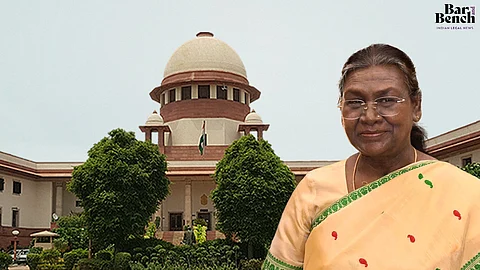
- Latest Legal News
- News
- Dealstreet
- Viewpoint
- Columns
- Interviews
- Law School
- Legal Jobs
- हिंदी
- ಕನ್ನಡ

A Constitution Bench of the Supreme Court will hear on July 22 a Presidential reference on whether the Court can lay down timelines and procedures for the President and State Governors when considering Bills passed by State legislatures [In Re: Assent, Withholding, or Reservation of Bills by the Governor and President of India].